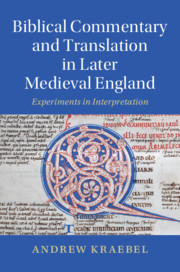The Reformation in Ireland has traditionally been seen as an unmitigated failure. This article contributes to current scholarship that is challenging this perception by conceiving the sixteenth-century Irish Church as part of the English Church. It does so by examining the episcopal career of John Bale, bishop of Ossory, County Kilkenny, 1552–3. Bale wrote an account of his Irish experience, known as the Vocacyon, soon after fleeing his diocese upon the accession of Queen Mary to the English throne and the subsequent restoration of Roman Catholicism. The article considers Bale's episcopal career as an expression of the relationship between Church and state in mid-Tudor England and Ireland. It will be shown that ecclesiastical reform in Ireland was complemented by political subjugation, and vice versa. Having been appointed by Edward VI, Bale upheld the royal supremacy as justification for implementing ecclesiastical reform. The combination of preaching the gospel and enforcing the 1552 Prayer Book was, for Bale, the best method of evangelism. The double effect was to win converts and align the Irish Church with the English form of worship. Hence English reformers exploited the political dominance of England to export their evangelical faith into Ireland.


